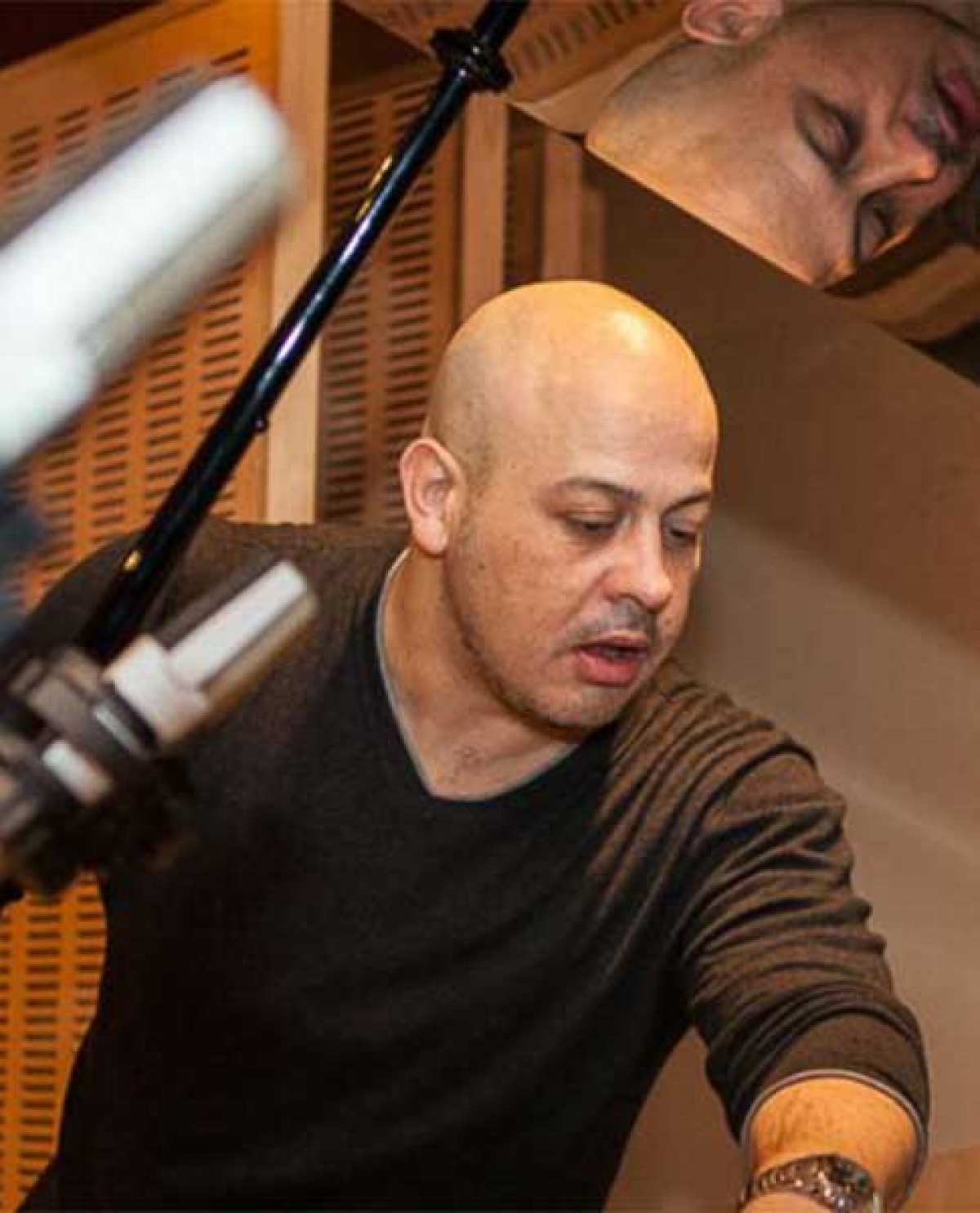
Eneko Vadillo
As always, the master conductor, percussionist and composer Yuri Chuguyev brings us a surprisingly fresh sound. A work that summarizes the main characteristics of this author of such an original language: eclecticism, vitality and communicativeness. The deep aroma of multiculturalism that permeates Málaga is breathed, and impressionist sounds, great orchestral tuttis, delicate moments of subtle refinement, as well as a unique rhythmic appeal resonate in perfect balance, all served in a performance under the direction of the maestro full of strength, firmness, delicacy and detail. The work has been recorded in Bratislava in the studios of the Slovak National Radio and reflects the influence that his land of origin, his adopted land and the creativity of Gaudí have had on the life and work of the Russian musician and director.
It represents an example of the fusion of styles that has given rise to the source of inspiration and results of the extraordinary creations of the Spanish composers Manuel de Falla and Joaquín Turina. The use of classic rhythms from Málaga folklore, but in a rhythmic and textural context contrary to the nature of the rhythm (hemiolias, syncopations, false accents) provide freshness and a renewed vision of what until now we could consider Málaga and folklore "tradition" Andalusian only in the mind of a Malaga native of Russian origin or an adopted Russian from Malaga would such a hodgepodge be possible
Plaza de la Merced begins in a rhapsodic and lyrical atmosphere, expressive picking up the charm of the Malaga square. The hustle and bustle of people is tinged with the charm of such a beautiful Malagueña square. The Andalusian turns are transmuted into harmonized melodic turns in a post-impressionist way. The always game of responses between sections so typical of a maestro with echoes of Ravel's bolero... Solos of bassoon trumpet oboe introduce a theme of Andalusian character interspersed by variations of it with the power of metal, creating an image of what the a beautiful plaza in malagueña is: a mix between bustle and intimacy.
It is followed by a beautiful theme for oboe and strings, in the form of a copla, which a Debussy or Ravel could have written, here in a climate dominated by the subtle ringing of castanets. The piece evolves to even epic situations with harmonizations in triadic parallelism giving the piece a powerful character in its middle sections.
Gracia y esperanza, of a clear inspiration or homage to the Holy Week in Malaga, begins with the ringing of drums that are immediately out of tune, being immediately accompanied by phrases that oscillate between the fanfare in trumpets and the lyrical in wood and strings. after an introduction, the main theme is established, the perceived image is clear. a transmutation of Holy Week, with rich sounds, non-classical melodies but which connect directly with the listener and make us feel a different Holy Week than the one we know, a transmutation. Surprising is the twist that the piece acquires in the middle, festive solemn and threatening at the same time. to return to the almost sacred climate with which the piece began
Flores de Málaga acts as a great lyrical interlude, impregnating all the sound fresco with poetry. Malaga smells of jasmine and orange blossom. Orange and jasmine trees adorn each door of each house or garden. the delicate, intoxicating and sweet harmonies that emerge are collected in the sensual and delicate flute solo with which he introduces this piece. After a fast episode, a beautiful violin solo followed by another even more delicate and exquisite clarinet take over the piece with an ethereal background and refined string tremolos. A musician who intoxicates and seduces like the colors and aromas of Malaga do.
The malagueta and the perchel introduce rhythms and syncopations that avoid classifying this music as a representation or transcription of traditional music (which it is not) original music inspired by the Russian maestro that lets the typical features of a music that is also his, malagueña, emanate. and Andalusian.
The Russian master avoids the temptation to make a lyrical and calm, reflective description of the sea that bathes the Malaga coast, the Alboran Sea. On the contrary, he gives us a sea full of verve, emotion and life. The sea that welcomed the first Tartessians, Carthaginians, Romans and other cultures that have bathed the city of Malaga on its slopes. A melting pot that welcomes, receives and transforms whoever approaches its charms. The same can be seen from this work, the most beautiful musical tribute that could be given to the city of Malaga.
Eneko Vadillo Perez
Professor of Composition, Analysis and Orchestration
of the Royal Conservatory of Music of Madrid

